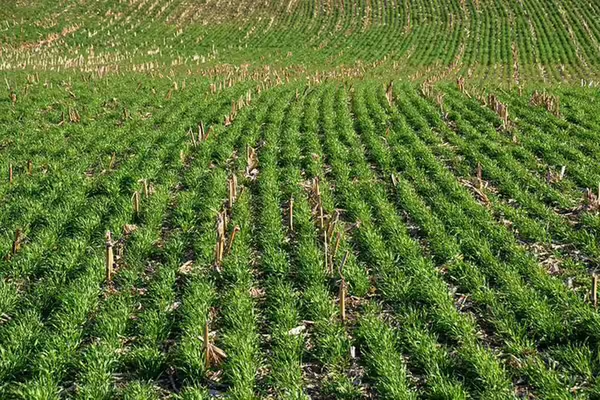
URBANA, Ill. – The Diverse Corn Belt project is seeking farmer input through focus groups and in-field research. This is a multidisciplinary project exploring alternative crops, longer rotations, integrating livestock and perennials that could help increase resilience in Midwest agriculture.
The project's 30 partners are exploring diversification at the farm, market and landscape level that can broaden new opportunities for Indiana, Illinois, and Iowa farmers and rural communities, says Dr. Linda S. Prokopy of Purdue University, who is leading the five-year, $10 million project. The team will conduct research, extension and modeling in all three states.
"We are seeking farmer involvement at every stage of the Diverse Corn Belt project, starting with understanding how different producers define diversity, and getting their direction on the questions they want us to explore," Prokopy says. "We want to know what is working for them in the current system and what the barriers are to diversification.”
She says they will explore a wide range of approaches to diversification of production systems and markets that can help producers and rural communities become more economically and environmentally resilient in the future. They will examine the social, infrastructure and policy changes needed to make diversification viable.
Farmers and other stakeholders can learn more about the Diverse Corn Belt project at diversecornbelt.org, and volunteer to participate at bit.ly/GoDCB. Farmers can participate in a variety of ways.
- Focus groups, in which producers with a wide range of approaches, from traditional corn/soybean rotations to highly diversified operations, gather to discuss the challenges and opportunities posed by diversification.
- Hosting in-field research, allowing agronomists, entomologists, hydrologists and soil scientists to study farmers' existing management systems, ranging from conventional corn/soybean rotations to more complex cropping and/or grazing programs. Host producers will not be asked to change their management; researchers will share and help interpret data produced on participating farms.
- Joining Reimagining Agricultural Diversification (RAD) Teams, engaged conversations among producers, agricultural advisors, community leaders, and others. RAD Team members will work closely with the research team and each other to share their insight on research findings, explore policy implications, and envision what the agricultural landscape of the Midwest should look like in the future.
"We are developing a vision of a Corn Belt beyond the corn-soybean system and its infrastructure, a future that provides farmers and communities with a more profitable and resilient agriculture," says J. Arbuckle at Iowa State University. "To do that, we're working with farmers with highly specialized systems that are prevalent today and with highly diversified farmers who provide examples of what's possible.
The Diverse Corn Belt project is funded by the USDA National Institute of Food and Agriculture through an Agriculture and Food Research Initiative competitive grant. Members of the research team represent land-grant institutions, federal agencies, and non-profit organizations.
For more information, contact Emily Usher at (765) 496-0997 or eusher@purdue.edu, or Steve Werblow at (541) 951-4212 or steve@stevewerblow.com.
ABOUT EXTENSION: Illinois Extension leads public outreach for University of Illinois by translating research into action plans that allow Illinois families, businesses, and community leaders to solve problems, make informed decisions.